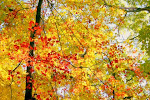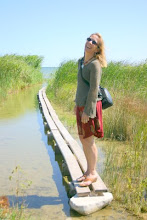Don't wait. Time is indifferent to how it passes, how it fills. It would as soon be full of sorrows as joy, pain as pleasure, boredom as thrills, Netflix television as Schindlers List, Trump as Sanders. Do now what you need to do, if that is scour your toilet or quit your job or call youtr father. Ask the questions to which you need answers or at least need perspectives that will help you to your own answer. Did you mean to hurt me? Is Facebook connecting us or dividing us? Have I done all I can to save the planet for our children; have you?
When is the time right? When the rain stops? When I have reached the age of safe retirement? When the travel restrictions to a country are removed and trade begins? When I reach voting age, drinking age, car rental age; what age is the age that death may come? Paul died yesterday. He was my age. He was my friend. He was one of those wonderful people that slip into the world practically unnoticed and make it better. He not only had a constant stream of ideas, he pursued all of them. A few days before he died, he returned from Tasmania. Tasmania. What the heck was he doing in Tasmania?? Well, having beers with the locals, that's for sure. And probably hiking and camping and looking for any navigable current of water he could float. I'm really glad he didn't die in Tasmania. But that is the only polite thing I have to say about losing him.
I want Paul back. I wanted to beg him out to Wisconsin this summer, so I could show him my new town, ride its bike paths, talk about urban planning and land use ideas, drink beers in the sunshine and walk home with me singing and Paul laughing, because we both grew up in conservative Lutheran homes where everyone sang off-key and no one ever cared as long as you showed up in the pew every Sunday, spit spot clean and shiny.
After I heard the news about Paul I went and stood in a hot shower for about a half hour, crying. I live alone, so it's kind of feels silly walking around the house sobbing to no one; the shower allows for solo sobbing almost as well as it allows for solo singing. Then I pulled out a bunch of old photo albums from the shelf in the study, craving a picture of Paul. But we didn't take pictures back then, when I lived in the same small town that now will hold Paul's lifetime forever in its history. It wasn't the time it is now, when every meal and every evening with friends is touted on Facebook and Instagram so the rest of us are conscious of everything we didn't enjoy last night. But Paul would never have bothered to write any of this; he just wouldn't care. He wouldn't have seen what you had for dinner last night or what play I went to see and what I thought of it; Paul would have been simply enjoying his one wild and precious life, live and in person, strumming his banjo, talking with friends, finishing up a landscape blueprint on his computer before someone else walked in the front door of his ramshackle old house that of course he had designed himself but never finished and certainly never cleaned. Paul lived every day, every minute.
So don't wait. The right moment is whenever you can. I mean, you can't take that trip if you don't have a passport or you can't afford the ticket or your dog needs you. You can't win a race if you don't train or paint a picture if you don't have paints. But life can be short. Life can, in a wink, be done. I am never going to see Paul again. Despite our shared upbringing as Lutherans, neither of us is going to walk around in the clouds singing and laughing again.
I haven't posted anything in this blog in years. I may not post again for years. I don't know. I don't care. I had to write. And now I have to go and see if I can change the flights I was going to take this week to some that will get me instead back to Durango. 'Cause the time is now, always now, and that's where I need to be, now.
When is the time right? When the rain stops? When I have reached the age of safe retirement? When the travel restrictions to a country are removed and trade begins? When I reach voting age, drinking age, car rental age; what age is the age that death may come? Paul died yesterday. He was my age. He was my friend. He was one of those wonderful people that slip into the world practically unnoticed and make it better. He not only had a constant stream of ideas, he pursued all of them. A few days before he died, he returned from Tasmania. Tasmania. What the heck was he doing in Tasmania?? Well, having beers with the locals, that's for sure. And probably hiking and camping and looking for any navigable current of water he could float. I'm really glad he didn't die in Tasmania. But that is the only polite thing I have to say about losing him.
I want Paul back. I wanted to beg him out to Wisconsin this summer, so I could show him my new town, ride its bike paths, talk about urban planning and land use ideas, drink beers in the sunshine and walk home with me singing and Paul laughing, because we both grew up in conservative Lutheran homes where everyone sang off-key and no one ever cared as long as you showed up in the pew every Sunday, spit spot clean and shiny.
After I heard the news about Paul I went and stood in a hot shower for about a half hour, crying. I live alone, so it's kind of feels silly walking around the house sobbing to no one; the shower allows for solo sobbing almost as well as it allows for solo singing. Then I pulled out a bunch of old photo albums from the shelf in the study, craving a picture of Paul. But we didn't take pictures back then, when I lived in the same small town that now will hold Paul's lifetime forever in its history. It wasn't the time it is now, when every meal and every evening with friends is touted on Facebook and Instagram so the rest of us are conscious of everything we didn't enjoy last night. But Paul would never have bothered to write any of this; he just wouldn't care. He wouldn't have seen what you had for dinner last night or what play I went to see and what I thought of it; Paul would have been simply enjoying his one wild and precious life, live and in person, strumming his banjo, talking with friends, finishing up a landscape blueprint on his computer before someone else walked in the front door of his ramshackle old house that of course he had designed himself but never finished and certainly never cleaned. Paul lived every day, every minute.
So don't wait. The right moment is whenever you can. I mean, you can't take that trip if you don't have a passport or you can't afford the ticket or your dog needs you. You can't win a race if you don't train or paint a picture if you don't have paints. But life can be short. Life can, in a wink, be done. I am never going to see Paul again. Despite our shared upbringing as Lutherans, neither of us is going to walk around in the clouds singing and laughing again.
I haven't posted anything in this blog in years. I may not post again for years. I don't know. I don't care. I had to write. And now I have to go and see if I can change the flights I was going to take this week to some that will get me instead back to Durango. 'Cause the time is now, always now, and that's where I need to be, now.


































